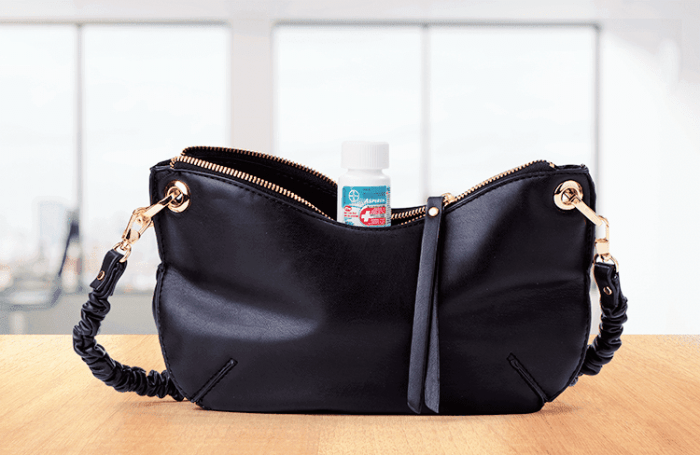Whenever the month of February comes to mind, it’s easy to associate it as the month of looooove. Stores everywhere are filled with sweet decorations, cupids, plush bears saying “I love you”, and the list carries on! Oh, but who could forget the best part of it all? Chocolate-shaped candies! Chocolate hearts, cinnamon hearts, heart-shaped boxes filled with an assortments of chocolates… Ah, love! What a beautiful little treat it can be, especially if it’s made of chocolate! But while you spoil your loved ones, it’s also important to remember to take care of your blood-pumping organ this month. In Canada, February is also Heart Month!

To celebrate the momentous work our hearts do for us every single day, why not take the time to learn and understand a little more about your own hard-working heart? As a Nursing Student, I personally know you’re never finished learning about it! In fact, did you know the human heart is approximately the size of your two hands clasped together? A mighty job for such a small organ!
During an average lifetime it pumps around 1 million barrels of blood (enough to fill more than three super tankers) and beats about 100,000 times a day. Meaning in the average lifetime, the human heart will beat more than 2.5 billion times. Impressive!
A HARD WORKING ORGAN!
Your heart, however, has many notable functions that involve more than just pumping and creating a pleasant heartbeat to listen to. Simply put, the human heart is what allows the constant transport of oxygen throughout our body, which is possible because of our red blood cells. The oxygen will travel by attaching itself to a red blood cell until it reaches a cell in our body that requires oxygen. Once the oxygen is given, your blood will travel back to your heart to be pumped into the lungs to receive brand new oxygen as you breathe, and will then travel back to your heart again to be pumped back into your system. Thus, the cycle carries on endlessly!
You may not think about this much when it works the way it should, but what happens when it doesn’t? It’s important to be able to effectively recognize a heart attack and have a basic understanding of what it is. A heart attack is produced when a coronary artery, the arteries responsible to bring nutrients and oxygen to the heart muscle, are either damaged or blocked by plaque build up. When the human heart muscle does not have enough nutrients and oxygen to fulfill an increasing demand, it has to work even harder with diminishing supplies, hence why, in some cases, symptoms are often felt during exercise. During hard activity, your body requires more oxygen than it does when it is at rest.
Symptoms
Symptoms vary from one individual to another, and may not always be sudden and severe. A common list of symptoms to look out for are:
- Chest discomfort (pressure, squeezing, fullness or pain, burning or heaviness)
- Sweating
- Upper body discomfort (in the neck, jaw, shoulder, arms, back)
- Light-headedness
- Nausea
- Shortness of breath

If you begin to feel any of these symptoms, even if they alleviate after you stop exercising and lay down, call 9-1-1 immediately and either crush or chew two ASPIRIN®81 mg tablets – it could save your life. ASPIRIN 81mg is approved in Canada for emergency use during a heart attack. If you have questions about your heart, talk to a doctor or trusted health care professional. Remember: the longer you wait to consult and seek immediate treatment, you’re at risk to create further damage to your heart. Some that might even become permanent.
This Heart Month, how do you plan on taking extra-special care of your heart?
Disclaimer: To make sure these products are right for you, always read and follow the label. I was generously compensated to write this post.
Disclaimer: Ottawa Mommy Club has partnered with Bayer Canada in order to share this article with you!.



Definitely important to take care of your heart. Both hubby and I are having issues with cholesterol so taking lots of steps to get that under control. We carry Aspirin with us at all times to be prepared in case anyone starts having symptoms of a heart attack.
About a year ago, I learnt for the first time about the use of aspirin in case you think you might be having a heart attack. Since then I always have a bottle of chewable ASPIRIN 81mg within easy reach – it’s better to be safe than sorry eh?
I will exercise, and eat healthy.
That is crazy 100,000 beats a day. Wow, it is a hard working organ! I saw it was heart month and my husband said “makes sense, it is valentine’s day”. Wow, never had I realized the connection, but yes perfect timing. It is a great way to increase awareness of the heart and all it does, and how to protect it.
Our family has a history of heart problems so I carry the chewable aspirins with me in my purse.I have not experienced anything in the line of these symptoms but my cholesteral is high and I want to be prepared.Thanks for all the great information.
My hubby has had some issues with irregular heart rhythms so I am always on him to try to eat healthy, get some exercise and decrease his stress.
Keeping aspirin in your purse, car, gym bag is a great idea!
Both sides of my family have heart problems. This is a subject I need to watch carefully. My mom had some of these symptoms last night. Luckily, we had Aspirin available.
It’s so important for women to be educated about their heart health. It’s really interesting to learn how different it is from men’s. I first learned about women’s heart healthcare from Barbra Streisand’s foundation and singer Toni Braxton’s personal experiences.
I do exercise regularly to keep my heart safe.